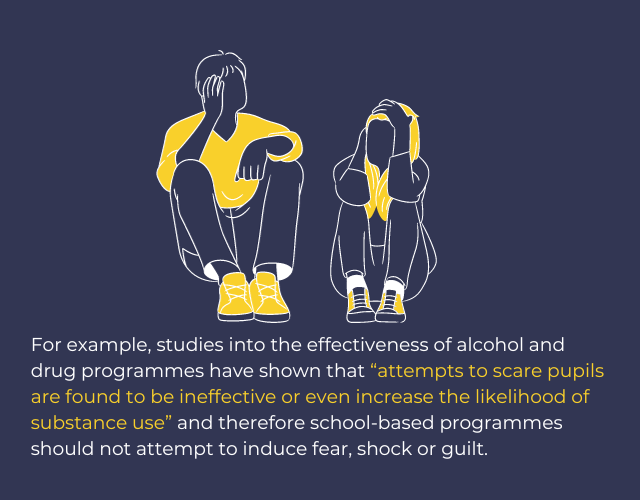
It is inevitable that some preventative approaches will have a greate r body of evidence supporting their implementation than others. As innovative interventions emerge, it may take some years before it is possible to fully evidence their impact. In addition, the complex nature of alcohol and drug use means that it can sometimes be difficult to establish causal connections between interventions and changes in substance use.
r body of evidence supporting their implementation than others. As innovative interventions emerge, it may take some years before it is possible to fully evidence their impact. In addition, the complex nature of alcohol and drug use means that it can sometimes be difficult to establish causal connections between interventions and changes in substance use.
Despite these limitations, decision-makers and frontline practitioners can usefully utilise research which has demonstrated that certain interventions are more (or less) successful than others in prevention. For example, studies into the effectiveness of alcohol and drug programmes have shown that “attempts to scare pupils are found to be ineffective or even increase the likelihood of substance use” and therefore school-based programmes should not attempt to induce fear, shock or guilt.
When designing staff training programmes; policy and legislation; and educational programmes, planners and practitioners should ensure that proposed approaches are informed by the most current and robust evidence base.